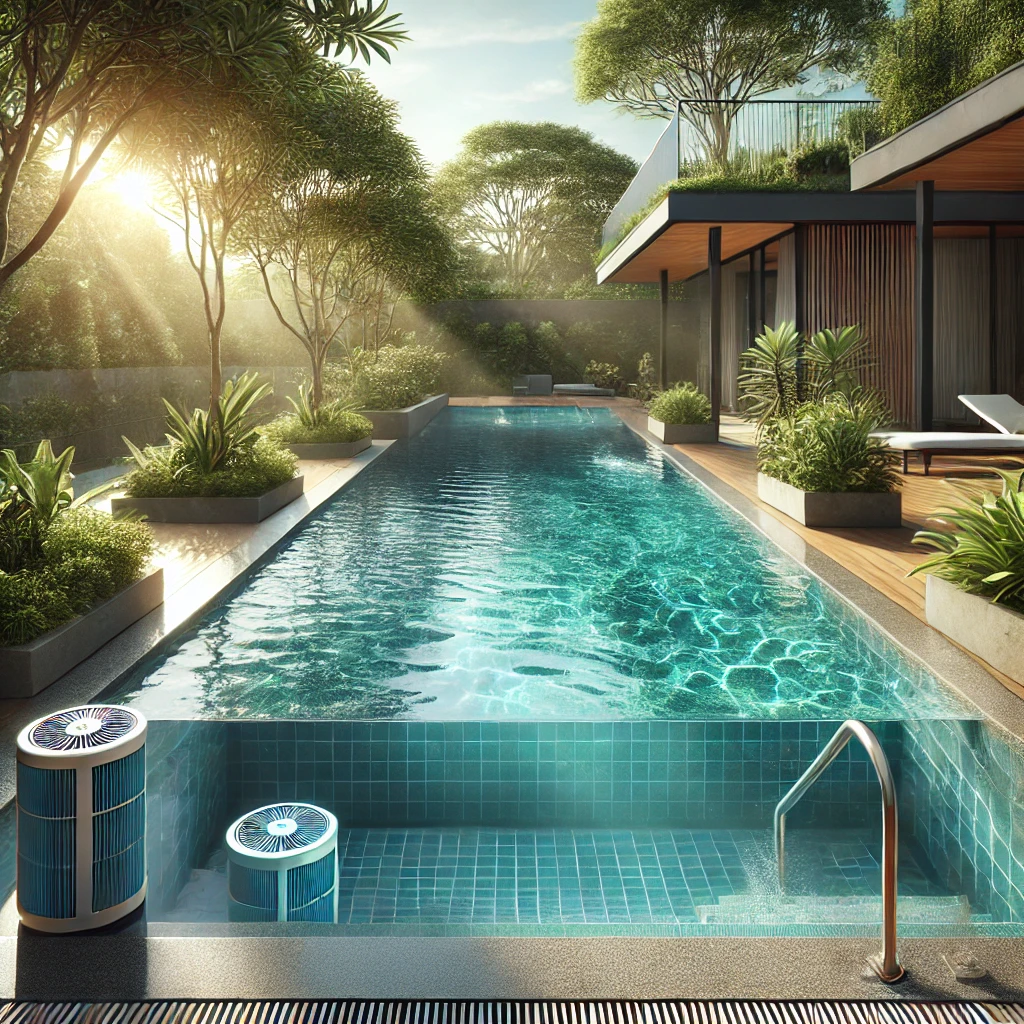Maintaining a clean and fresh-smelling pool is a priority for pool owners. However, when using chlorine for pools, the chemical odor can sometimes overpower the natural scent of the water. Luckily, there are ways to keep the water clean and still preserve its fresh smell. In this article, we will explore effective methods for maintaining a natural pool water smell while using chlorine tablet treatments.

I. Understanding Chlorine Tablets
A chlorine tablet is a common pool sanitizer used to kill harmful bacteria. These tablets dissolve slowly, releasing chlorine into the water. Chlorine for pools ensures that the water remains free of germs and contaminants. However, as chlorine reacts with organic materials like sweat and oils, it can produce a strong chemical odor. This smell can sometimes make the pool less inviting.
II. Why Does Chlorine Cause an Odor?
Chlorine itself doesn’t produce a strong odor. The smell comes from chloramines, which are formed when chlorine reacts with organic substances. These chloramines create that recognizable “chlorine” smell in pools. The more organic matter in the water, the more chloramines form. When using a chlorine tablet, it’s important to control chloramine levels to maintain a fresh-smelling pool.
III. Regular Testing and Balancing
Testing the pool’s chemical levels regularly is essential. When you use chlorine for pools, keeping the balance right prevents chloramines from forming. Regularly testing the chlorine and pH levels ensures that the chlorine works effectively. The recommended chlorine level for pools is between 1.0 and 3.0 ppm. By maintaining this range, you prevent excessive chloramine buildup and reduce strong odors.
Additionally, balancing the pH level is crucial for maintaining a natural smell. The ideal pH for a pool is between 7.2 and 7.8. If the pH is too low or too high, chlorine tablet effectiveness decreases, leading to more odor-causing chloramines.
IV. Shocking the Pool
One of the most effective ways to reduce chloramine levels is by shocking the pool. Shocking involves adding a large dose of chlorine for pools to break down chloramines. This process eliminates the strong chemical smell that builds up over time. It’s important to shock the pool regularly, especially after heavy usage.
By shocking the pool with a chlorine tablet, you restore the water’s natural freshness. This process should be done weekly or after a pool party to maintain a clean, odor-free environment.
V. Improving Circulation
Good water circulation helps prevent chloramines from accumulating in one area. Proper circulation ensures that chlorine for pools spreads evenly throughout the water. Make sure your pool pump is working efficiently. Running the pump for several hours a day helps keep the water moving and reduces the risk of chemical odors.
Additionally, ensuring that your pool filter is clean and functioning correctly supports good circulation. A well-circulated pool distributes the chlorine tablet evenly, helping the water stay clean and fresh.
VI. Clean the Pool Regularly
Regular pool maintenance is key to reducing chlorine odors. Leaves, dirt, and other debris in the pool react with chlorine for pools, forming more chloramines. By keeping the pool clean, you reduce the organic matter that leads to chemical smells.
Skimming the pool daily and vacuuming the bottom weekly helps remove debris. Cleaning the pool filter regularly also ensures that it can trap contaminants effectively. A clean pool allows the chlorine tablet to work efficiently, keeping the water fresh and odor-free.
VII. Use Pool Covers
Pool covers are a simple yet effective way to keep the pool clean and reduce odors. Covering the pool when not in use prevents debris from entering the water. It also reduces the evaporation of chlorine, helping the chlorine tablet last longer.
By using a pool cover, you reduce the need for additional chlorine, which helps maintain the water’s natural smell. It also keeps out organic materials that can contribute to chloramine buildup.
VIII. Proper Ventilation
For indoor pools, proper ventilation is crucial. Chloramines can build up in enclosed spaces, creating a strong smell. Ensuring good air circulation around the pool helps reduce the odor. Ventilation systems or simply opening windows can allow fresh air to enter and disperse the chloramine gases.
For outdoor pools, surrounding the pool with plants can help absorb some of the odors. Fresh air and good ventilation are key to keeping the pool environment pleasant when using chlorine for pools.

IX. Alternative Sanitizers
If you find the chlorine smell too strong, consider using alternative sanitizers alongside chlorine tablet treatments. Saltwater systems, for example, produce chlorine naturally and result in fewer chloramines. While still using chlorine, these systems typically have a milder smell.
Mineral-based sanitizers are another option. These systems use fewer chemicals and provide a softer feel to the water. They can help reduce the chlorine odor while still maintaining sanitation. Though these alternatives are not as strong as chlorine for pools, they can help balance the chemical load in the water.
XI. Monitor Usage and Shock Frequency
The frequency of pool use impacts the level of chloramines in the water. Pools with high swimmer traffic often require more chlorine tablet treatments and more frequent shocking. Monitoring how often the pool is used can help you determine when to shock the pool or add more chlorine.
By keeping track of swimmer load and adjusting chlorine levels accordingly, you prevent chloramines from building up. This helps maintain a fresh, clean-smelling pool.
XII. Conclusion
Using chlorine for pools is essential for keeping the water clean and safe. However, it’s possible to maintain a natural pool water smell while using a chlorine tablet. By regularly testing and balancing chemical levels, shocking the pool, and improving circulation, you can reduce the strong chlorine odor.
Cleaning the pool regularly and using a pool cover further helps keep the water fresh. Proper ventilation and considering alternative sanitizers can also enhance the pool environment. With these simple steps, you can enjoy a fresh-smelling pool that remains clean and inviting.




